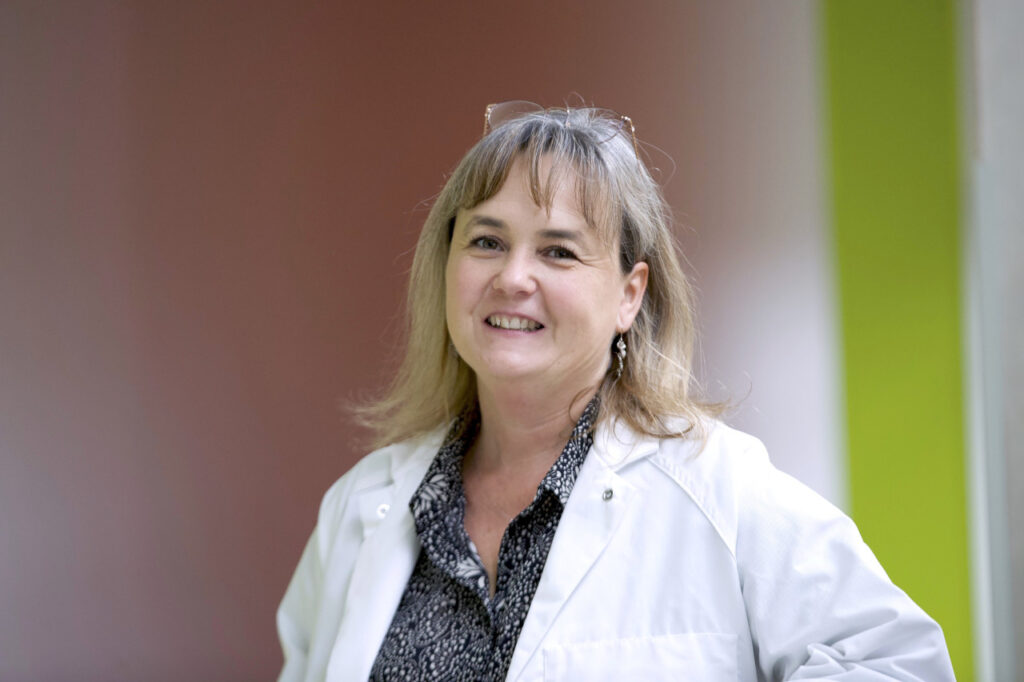Neurobiomics: a hidden cure for Alzheimer's disease in the gut flora...
Born out of a partnership between theInstitute of Functional Genomics (IGF) and thePasteur Institute, the Neurobiomics project is developing a promising drug derived from the gut microbiota that can impact memory. This innovative project has benefited from the support and mobilization of the University Innovation Cluster (PUI).

When two research teams combine their knowledge and experience, they create something extraordinary. This is precisely what happened before the launch of the startup NBX Biosciences, boosted by the resources of the University Innovation Hub, and now on the verge of developing a promising drug for the treatment of Alzheimer's disease.
A researcher at the IGF, Sylvie Claeysen has been studying the role of gut microbiota in the onset of Alzheimer's disease since 2014. During this time, she has focused specifically on the composition of the microbiota of patients with the disease and, as part of a study conducted in collaboration with the Memory and Resources Research Center Research CMRR) at Montpellier University Hospital, has succeeded in analyzing the proteins and metabolites produced by the disease. "We already knew that the microbiota influenced the phenotype of its host in cases of depression and obesity. This time, we have succeeded in establishing a correlation between the microbiota and cognition. During our studies, we also monitored the impact on food consumption and sleep. And I used the samples collected from subjects with Alzheimer's disease to test microbiota transplantation in mouse models, " explains the researcher.
A protective effect on memory
At a conference held in 2021, she met Damien Rei, then a postdoctoral researcher working on the same topic for the Pasteur Institute. "As part of his post-doctoral research, he demonstrated that transferring the microbiota of elderly subjects to mice has an impact on the animals' memory." So that year, the two researchers decided to work together on the Neurobiomics project.
Animal behavior plays a central role in their research. "It is very complicated to study memory in cells... We are forced to study it in animals, but our tests are non-invasive," explains Sylvie Claeysen. "When faced with two identical objects, the mouse explores and sniffs them. Five minutes later, when we put it back in the presence of two objects, one of which is new, it spends more time with the one it doesn't know because it's curious. We repeat the test 24 hours later... If it explores both objects in the same way, it means it no longer remembers the new one," continues the researcher, who also examines other complementary parameters, such as neuron activation and brain inflammation. Damien Rei is responsible for screening bacterial strains that may have a protective effect on memory. And so, together, the duo is developing a promising drug candidate.
Analyze the bacteria
Currently, both teams are conducting tests on mini-intestines to measure its potential effect in humans. "This system allows us to use intestinal flora from healthy subjects or those with Alzheimer's disease. This enables us to analyze the bacteria, which has already been patented, and its mechanism of action. This is the work we are currently doing," says the researcher, who aims to further deepen knowledge on the subject and go "beyond proof of concept. "
Officially created in 2023, the company was named NBX Biosciences and benefited from the"Companies and Campus"program, which served as a launch pad between the academic world and the socio-economic world. "This program enabled us to hire an engineer and gradually move forward in the preclinical phase," adds Sylvie Claeysen.
The duo hopes to quickly move into the pre-industrial phase so they can generate batches of bacteria, which will act as probiotics, in a culture medium that they want to have as little impact on the environment as possible. Developed under the wing of the Technology Transfer Acceleration Company (Satt AxLR) and the Montpellier Business & Innovation Center (BIC), NBX Biosciences was the very first company to win the Boost Invest MedVallée program in March 2024. In the coming weeks, it is also expected to apply for Bpifrance's i-Lab competition. And if all goes well, researchers could begin phase 1 clinical trials in humans within a year or two...